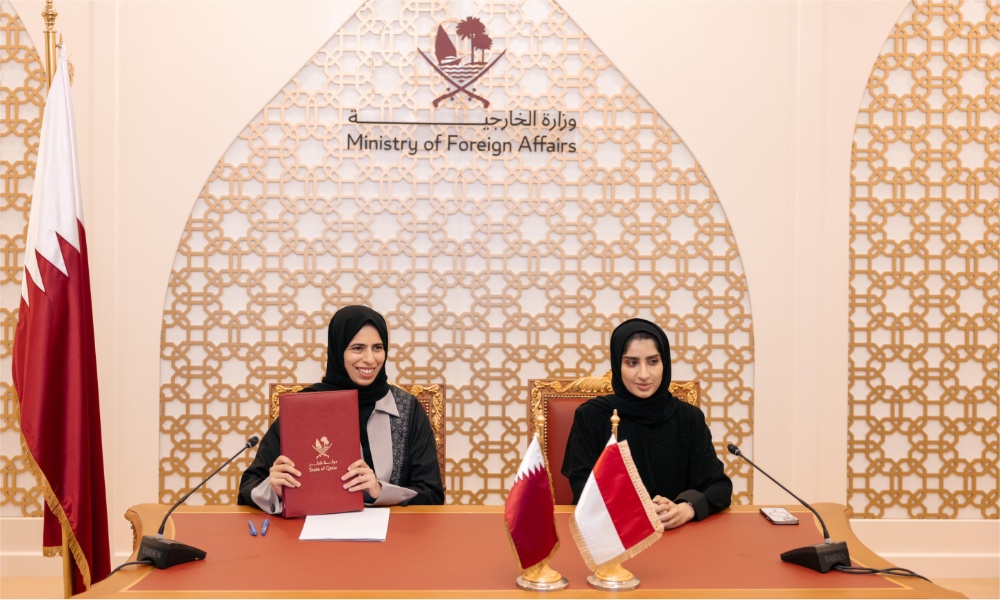Qatar and Indonesia have signed a memorandum of understanding (MoU) that provides Afghan students scholarships to study in Indonesia.
Qatar’s Minister of State for International Cooperation Lolwah bint Rashid Al Khater signed the MoU with Indonesia’s Minister of Foreign Affairs Retno Lestari Priansari Marsudi.
According to a statement issued by the Qatari Foreign Ministry, the MoU aims to establish a cooperation framework to build human capacities of the Afghan people by providing scholarships to study in the Republic of Indonesia.
The scholarship program is part of the two countries’ broader shared vision and mission to support education and development projects in Afghanistan locally and globally, with a particular focus on creating opportunities that empower Afghan youth to build a brighter and more prosperous future in their country, Al Khater said.
She also affirmed Doha’s unwavering support for Afghanistan and spoke about Qatar’s $75 million pledge to support the country.
Al Khater said the MoU would boost the Qatar-Indonesia mutual commitment to establish a framework of cooperation to help build human capacities of the Afghan people by providing scholarships for Afghan students to study in Indonesia.
She also said Qatar would continue to provide humanitarian and development assistance to the Afghan people, in partnership with Indonesia and other countries in the fields of health, food security and capacity building.
Indonesia’s minister of foreign affairs, Marsudi in turn said that the ongoing humanitarian crisis in Afghanistan underscores the urgent need for education, especially for Afghan women and girls.
She pointed out that currently there are more than 20 Afghan students benefiting from scholarships in Indonesia and that the signing of the MoU will enable more Afghan students to pursue higher education at Indonesian universities.
She also pointed out that Indonesia provided this year 10 million polio vaccine doses and humanitarian aid to the Afghan people affected by natural disasters, in addition to its cooperation with a local non-governmental organization to organize a psychosocial project that includes 400 Afghan women, providing them with the opportunity to participate in social life and enabling them to overcome their challenges.
Affirming her belief in the importance of creating a favorable environment for Afghan women and providing further job opportunities, Marsudi highlighted her country’s readiness to help develop a business model for Islamic microfinance that is appropriate for Afghanistan.













